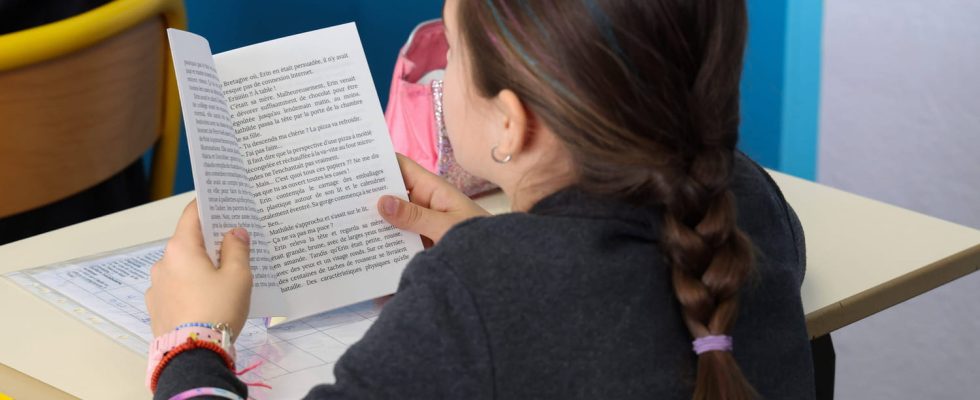An Ipsos study for the National Book Center was published this Tuesday, April 9. She points out that fewer and fewer young people aged 7 to 19 are reading.
An Ipsos survey carried out with the National Book Center concerning young people and reading was published this Tuesday, April 9. Fewer and fewer young people are reading. In 2016, 90% of 7-19 year olds said they read books for school or work. In 2024, they are 84%. For personal reading, young people drop out from 10-12 years old. Boys are the most disinterested in reading. Only 50% of them read out of personal desire from the age of 16.
Concerning regularity, the figures are also falling. 32% of young people surveyed say they read “every day or almost” for leisure. They were 36% in 2022. 19% of 7-19 year olds admit to not liking reading. A share which is increasing among 16-19 year olds: they are 31%, or 10 points more than in 2022.
The study also compared time spent on screens to time spent reading. Screens (except audio or digital books and screens used in education) are used on average for 5 hours 10 minutes per day by 16-19 year olds. An age group that reads 1h25 per week on average.
“A thousand sheets of bad news”
It is “A thousand sheets of bad news”, according to Étienne Mercier, director of the Health & Opinion department of Ipsos, who is at the origin of the survey. “Children also reproduce a lot of the behavior of the adults around them,” reacted Régine Hatchondo, president of the National Book Council on BFMTV. She asks adults to set an example.
On the other hand, 44% of young people say they read digital books. An increasing figure: they were 33% in 2022. Same thing for audio books: 42% listen to them, compared to 21% in 2016. They are particularly numerous among those under 10 years old. Books remain the number one item of purchase for 7-19 year olds, notably thanks to the Culture Pass. This was used by 45% of boys and 72% of girls. It is aimed at 15-18 year olds.
